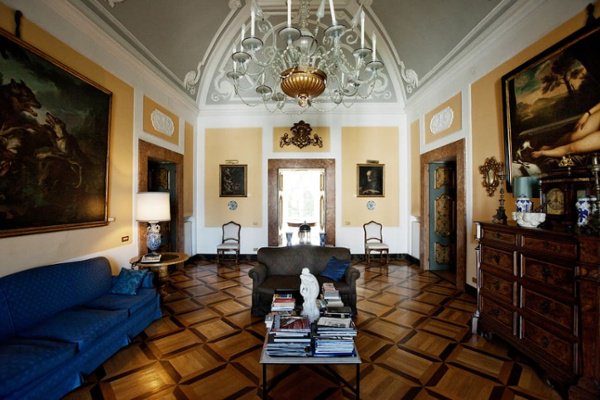
Ever since Barry Manilow's drummer, David Rozenblatt, convinced Airbnb to start renting out whole properties in 2010, it has been technically possible for a hotel to be listed on the platform.
However, it was only recently that Airbnb began to actively court the hotel sector.
The segment particularly targeted by the sharing economy platform is boutique hotels and bed and breakfasts (B & B's), which can offer the 'personalized experience' that Airbnb seeks to provide to its customers.
By August 2017, Airbnb had listings for 15,000 boutique hotels, about 10 months after introducing them to the platform, according to the group's CEO Brian Chesky.
In order to better differentiate its offerings Airbnb has announced four new categories of listings, which include: vacation home, unique space, B&B and boutique, and will give hosts "an unprecedented level of detail in the travel industry" to showcase their properties, according to the company.
By expanding and segmenting its listings into distinct categories, Airbnb is mimicking what the major hotel companies and OTAs (online travel agencies) have done through offering different brands and price points.
SiteMinder tie-up
In early February, Airbnb announced a partnership with SiteMinder, a distribution channel manager for some 28’000 hotels, which is partnered with 550 connectivity providers.
SiteMinder is a cloud-based distribution platform whose products include: "The Channel Manager", an online distribution platform; "TheBookingButton", a booking engine for direct bookings via the web, mobile or social media; "Canvas", a website creator for independent hoteliers; "Prophet", a real-time market intelligence solution that helps hotels to price their rooms; and "GDS by SiteMinder", a link to the hundreds of thousands of travel agents and the world's major global distribution systems.
Now traditional and smaller hotels are being expressly invited to list on the Airbnb platform using SiteMinder's real-time channel manager connection.
“Small hotels and B&Bs have long used Airbnb and now we’re building new tools and partnerships to help these local businesses thrive,” notes Cameron Houser, Airbnb’s program manager for hotels, who adds that, “We are dedicated to working with small hospitality businesses that excel at offering the best guest experiences and living our mission of belonging and we couldn’t ask for a better partner than SiteMinder.
"SiteMinder is the industry leader and we look forward to continuing to work together to support boutique hotels and bed and breakfasts around the world.”
Meanwhile, Mike Ford, managing director and founder of SiteMinder notes that, “In an increasingly-complex and competitive world, SiteMinder’s partnership with Airbnb offers a new opportunity for boutique hotels and bed and breakfasts to engage the growing number of travellers who seek exceptional hospitality and an authentic local experience.
"We are delighted to provide an innovative technology solution that now makes it easy for these small accommodation providers to reach the millions of customers who use Airbnb every day and get time back to provide memorable experiences for guests."
Airbnb targeting OTAs?
Whereas it has been commonly believed that hotel chains were the most vulnerable sector to the inroads of Airbnb, perhaps it is the OTAs that are more at risk.
The giant rental website charges property owners (hoteliers or otherwise) a commission on bookings of only 3% to 5% which is way below the 15% to 30% typically billed by the big OTAs.
In mid-March, Airbnb stepped up its campaign to attract hoteliers to its site.
In an open letter addressed to boutique hotel and B & B owners, the rental platform outlined its case for why those properties should list on its site, stating that, “We know that many of you are thinking about the best ways to market your rooms online… Time and again, small business owners told us that the fees charged by travel agents like Expedia and Booking.com—which can be as high as 30%—are too high.
"We want Airbnb to be for everyone, including professional hospitality providers that offer unique spaces and personal hospitality to the Airbnb community.”
Other advantages for properties listing on Airbnb include: no long-term contracts; full control over when inventory appears on Airbnb; and lower competition, since boutique hotels listed on Airbnb are not competing directly against the major chains.
Some drawbacks nevertheless….
While the property owner pays a low 3% to 5% commission on bookings, it should not be forgotten that the guest pays a booking fee which can be as high as 20%, and "is calculated using a variety of factors including, but not limited to, the reservation subtotal, the length of the reservation, and characteristics of the listing", according to Airbnb, who furthermore note that, "In general, higher reservation subtotals have lower guest service fee percentages".
Thus the customer could pay considerably more than the prices listed on the platform's website which could be a deterrent.
Also, it's difficult to sort out the specific type of lodging on the Airbnb site, such as B & B's and hotels which seem to be mixed in with all the rest by destination.
By comparison, on Booking.com, the traveller can search by type of accommodation, e.g. hotels, apartments, hostels, guest houses, bed and breakfasts, as well as by star grading.
This article first appeared on the SSTH blog.



